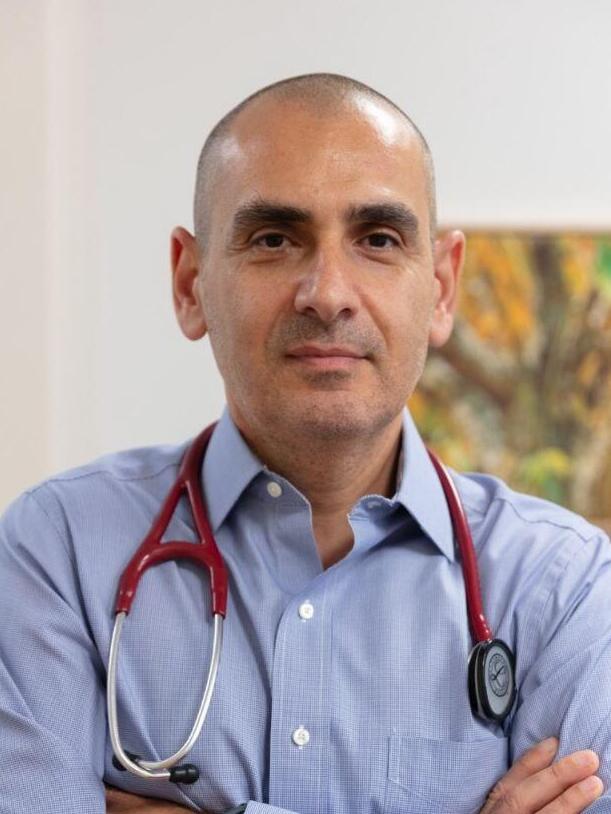Getting your Trinity Audio player ready...
Meningococcus, a virulent bacterium that led to the death of a 20-year-old IDF soldier at the Hadassah Medical Center last week, can cause meningitis and a serious disease called meningococcemia, in which the bacterium spreads through the bloodstream throughout the body.
More stories:
Mortality and disability rates following meningococcal illness are very high, stemming from the fact that it is a rapidly progressing disease, that begins with nonspecific symptoms (fever, weakness, headaches, and muscle pain) that often don’t prompt immediate medical attention. When the condition worsens, deterioration can be dramatic and swift, and antibiotic treatment for the bacterium doesn’t always save the patient.
This is why the main approach to dealing with meningococcal illness is prevention. Since it’s difficult to identify the disease in time — and when it is identified, treatment is often late and ineffective — attempting to prevent the illness through vaccination is the best strategy.
Although meningococcal disease requires reporting in Israel, and every positive case is reported to the Health Ministry, there’s limited information published in Israel regarding the prevalence of the disease.
A study led by Prof. Chen Stein-Zamir from the Health Ministry and published in 2018 indicates that the incidence of the disease in Israel over a decade was one case per 100,000 citizens (a significantly higher rate than reported in the United States and in some European countries).
Meningococcal disease, primarily affecting infants, is also common in another age group, which sees increased prevalence as individuals reach military and college ages. This is a group of adolescents who often live in crowded conditions, allowing the bacterium (which many people carry without causing any illness) to spread easily from one person to another (in the army, university dormitories, yeshivas, among others).
This is why meningococcal vaccination has become part of the vaccination routine in many countries worldwide for these age groups, ranging from infants and adolescents aged 15-19.
In Israel, a meningococcal vaccine hasn’t been included in the routine vaccination list for infants and adolescents, despite being proposed for inclusion in the health basket several times. This is because of its relatively high cost and the need to vaccinate the entire population to prevent a small number of cases each year.
In discussions about the health basket, when resources are limited, this expenditure may significantly affect the whole basket. Despite the absence of meningococcal vaccines from the health basket, the Health Ministry recommends vaccinating infants against meningococcal disease in its vaccination guidelines and considers vaccination for children beyond that age.
The only group routinely vaccinated against meningococcal disease in Israel is soldiers who receive the vaccine during their enlistment process. However, according to the same study by Prof. Chen Stein-Zamir, about 70% of all meningococcal infections in Israel are caused by the meningococcal B strain, which isn’t included in the vaccine provided in the military.
A study published in 2009 by Dr. Daniel Maymoni from the IDF Medical Corps reported that since 1995 — the year when all IDF soldiers began to be vaccinated against meningococcal disease — a significant decrease in the number of cases has been observed annually among soldiers.
However, there’s still an average of one case of meningococcal disease among soldiers every year, and these cases have always been infections with the B strain, which isn’t included in the vaccine given to IDF soldiers.
There are two vaccines available in the market today against the meningococcal B strain, and recently, a new vaccine has been approved by the U.S. Food and Drug Administration (FDA) that combines the vaccine received by IDF soldiers with a vaccine for meningococcal B in one formula. It is hoped the Health Ministry and IDF Medical Corps will consider replacing the existing vaccine with this new one.
 Dr. David ShashaPhoto: Nir Sasson
Dr. David ShashaPhoto: Nir SassonAdditionally, it’s important to remember that in Israel, only 50% of youth aged 18 serve in the military and receive the meningococcal vaccine. The remaining 50% include Israeli-Arab youth, ultra-Orthodox individuals, and other youth who don’t serve in the IDF. These youth may also be found in crowded environments and be included in the at-risk group for meningococcal infection.
While meningococcal vaccines for infants and adolescents are available in the private sector, and many parents do decide to vaccinate their children, this reality reflects the inequality in healthcare services in Israel, where children from affluent families receive good and up-to-date preventive medical care, while children from low-income families do not.
- Dr. David Shasha is a specialist in internal medicine and infectious diseases at the Tel Aviv Sourasky Medical Center.




